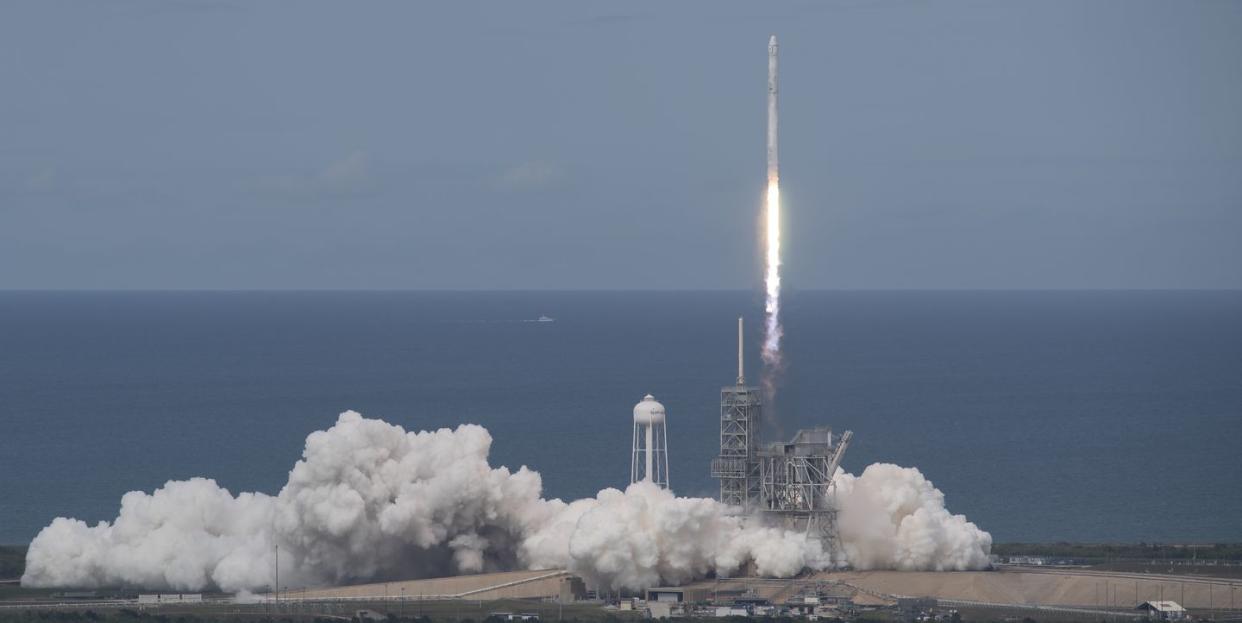SpaceX to Launch 7,000 More Internet-Beaming Satellites

Elon Musk's SpaceX is winning the race for satellite supremacy. On Thursday, the aerospace company won approval from the Federal Communications Commission (FCC) to launch 7,000 new internet satellites into low-Earth orbit, markedly increasing the number of satellites currently deployed.
The Commission voted in favor of Musk's juggernaut, which has long held ambitions to expand global broadband internet access by way of a satellite constellation called Starlink, which the company hopes will include 12,000 satellites by the mid-2020s. The agency's approval gives SpaceX the lead in a competitive field: Per Bloomberg, there's only 2,000 satellites currently floating in low-Earth orbit. The deal means SpaceX is primed to build on its already formidable interstellar real estate, and make tangible headway in its pursuit of a space-based internet. In March, the company gained approval to launch 4,000 internet-beaming satellites.
With space poised to host an influx of devices, the FCC also approved a few measures to curb the inevitable build up of space junk. With a variety of companies like Rocket Lab, Iridium Next, LeoSat and Open Cosmos vying alongside SpaceX to make satellite launches cheaper and more efficient, the issue of crowding has become a cause for concern.
Per Bloomberg:
The agency on a 4-0 vote advanced rules to require more calculations to demonstrate a planned spacecraft poses a minimal risk of collisions, and to minimize new orbiting debris -- for instance, from devices that remain aloft after releasing a satellite.
To illustrate the point, FCC chairman Ajit Pai reportedly invoked the 2013 film Gravity, which showcases a particularly bad encounter with space junk.
SpaceX is reportedly set to begin launching its new satellite fleet next year, but its ambition to formally upend the internet as we know it will certainly take longer.
Source: Bloomberg
('You Might Also Like',)

